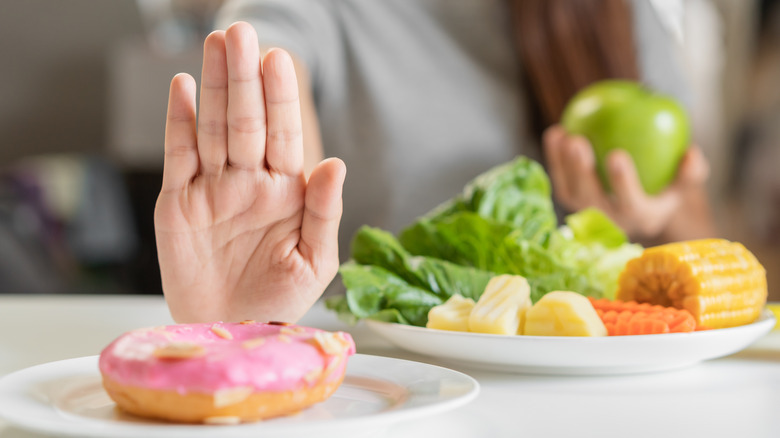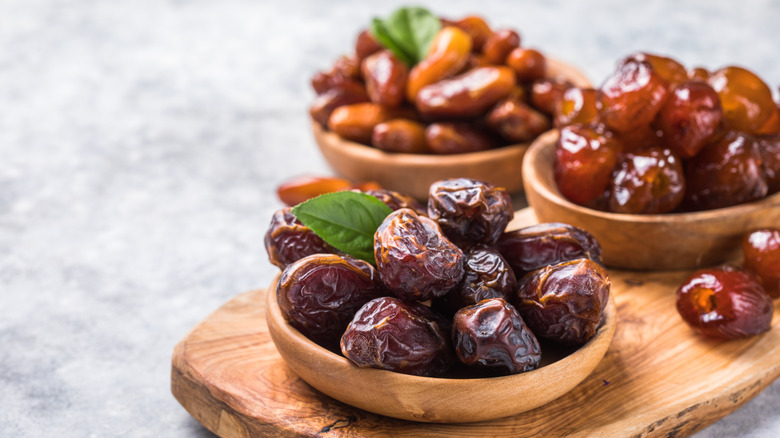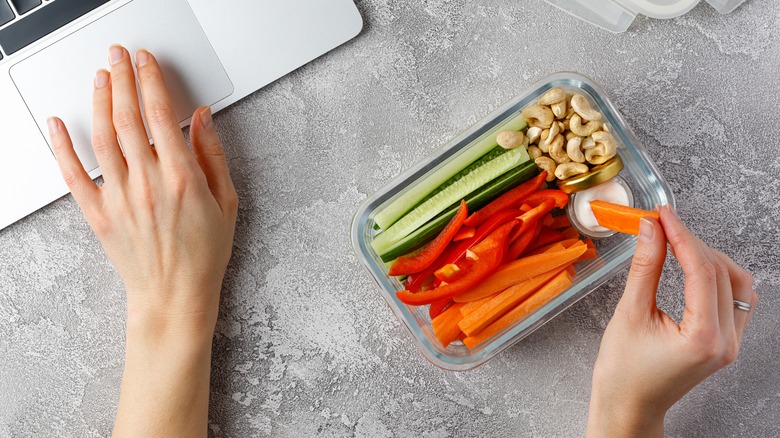Can Snacking Help Or Hinder Your Weight Loss Goals?
Diets, no matter which type you go for, always involve restricting what you eat to a certain extent. Some diets only allow you to eat certain foods, while others require you to be meticulous with portioning out your meals. There are even some plans that implore you to limit the number of times you eat in a day. This is usually what turns people off dieting altogether, as there's a misconception that snacking is a big no-no.
If you think about it, snacking seems counterintuitive as it entails munching on small portions of food in between meals. And no matter how healthy those snacks are, they still contribute to the overall number of calories you consume, which may or may not affect the caloric deficit you're ultimately gunning for.
People keen on losing as much weight as possible may completely dismiss snacking while rigorously sticking to their diets, but the truth is that snacking can actually help shed those extra pounds, especially when done correctly. Contrary to popular belief, snacking is a friend to weight loss.
It's all about healthy snacking
Not all snacking is bad, at least according to health experts. The only type of snacking you should avoid is the one most people usually fall prey to — going on junk food binges, mindlessly munching on chips and pastries, and chugging on sugary drinks like there's no tomorrow. Snacking is actually encouraged by many dieticians as it helps curb hunger and prevent you from overeating during your next meal, maintains your energy levels, and even gives you extra nutrients.
Registered dietician Brigitte Zeitlin, R.D., M.P.H., C.D.N., recommends doing it a few times a day to manage your blood sugar levels. After having breakfast, "You should eat a meal or snack every three to four hours until dinner," she advised Self. Likewise, "Make sure to stay awake for at least 30 minutes after your final meal to allow for proper digestion and a better night's rest."
To make snacking more effective, it's important not to do anything else at the same time. Being preoccupied with other tasks as you munch may lead to consuming more than what you intended. Even if it's a healthy snack like fruit or a bag of nuts, mindless snacking prevents you from registering what you're eating, which often results in wanting to consume more food later on. It also makes the act of snacking less enjoyable overall.
Snacks that can aid in weight loss
The wonderful thing about snacking is that you have plenty of options to choose from. You can select from a variety of fruits, veggies, nuts, crackers, and more. The rule of thumb when it comes to healthy snacking, however, is to plan it just like how you plan your regular meals. As Allison Koch, RDN, CSSD explained to Women's Health magazine, "Like a meal, it should contain some protein, carbs, and healthy fats. Bonus points for fiber, as that helps fill us up and slows digestion, leaving you feeling fuller longer."
Now, when it comes to portioning, your snack should be just enough to satiate your hunger for a few hours, but not in a way that will completely spoil your appetite for your next proper meal. You'll generally want to keep it in the neighborhood of 150 to 250 calories per snack so as not to affect your weight loss goals as well. Think eight to 10 ounces of Greek yogurt, an entire piece of apple, half an avocado, or even four to five pieces of dark chocolate if you're craving something sweet.
It's also worth noting that just because you're nibbling on healthy eats doesn't mean that you can't go overboard. Moderation is key, so try to listen to your stomach and think of food as fuel to keep yourself in check.


